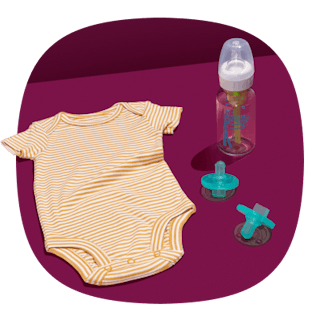Facing a financial crisis is overwhelming. There’s no way to sugarcoat the stress of losing a job or, in these rough financial markets, watching hard-earned investments (some doubling as a nest egg) seemingly disappear overnight. But with planning, organizing, and a lot of flexibility, there are ways to survive a financial crisis without piling on even more anxiety.
Some of these are no-brainers, starting with making a budget. We’ll get into the how and the why, but when you can visually see what money you currently have and what bills you must pay, it becomes clearer where to cut costs. Other tips are less obvious, but can really make a difference until you’re back on your feet.
Here are proven tips, tricks, and tactics to help you find a sense of security until things turnaround financially. And if it’s deals and savings tips you need, text HACKS to 57299.
Making a budget is your first step to survive a financial crisis.

Create a list that includes rent/mortgage, groceries, utilities, car payments/gas, credit card debt, loans, and any “extras” such as entertainment, travel and dining out. This list provides a clear picture of money coming in and out and which expenses can be cut or consolidated (even temporarily to make room for more savings). Then create a budget that sets realistic spending limits and goals. This will help you stay on track and be mindful of your spending habits.
RELATED: Free Budget Printables for a Money-Saving Year
Negotiate a better interest rate.
If you have debt such as credit cards or loans, there are ways to negotiate with your creditors. They might be open to negotiating a better interest rate, or even lowering your loan rate to 0% interest for a limited period (such as one year or X amount of billing cycles). Some may even allow you to “freeze” your account so that your debt will not snowball. You can then save or wait to pay off your debt until you are in a better financial situation.
Switch to a 0% credit card.

If you have credit card debt, it might be tempting to just pay the minimum payment until you have more money coming in, but that’s a mistake. Instead, consider switching your balance to a 0% credit card. You’ll need to have a good credit rating to take advantage of this, but it’s often the best way to fast-track your credit card debt payoff plan. You can buy yourself more time to pay off debt without having to worry about interest rates for anywhere between 6 to 24 months.
Consolidate your loans.
Many lenders offer the option to consolidate your loans. The process may seem daunting at first, but it’s worth it to help survive a financial crisis. Consolidating gives you the opportunity to discover or negotiate a better debt repayment plan (including lower interest rates). It’s especially helpful for those who have multiple loans or hold debt with different institutions. Once you consolidate, your debt becomes much easier to manage, since you only need to worry about making one payment.
Call your service providers.

Call service providers such as internet, cable, and phone to negotiate a lower rate or ask about promotions that could reduce your bill. Some companies may even offer special discounts or promotions if you explain your financial situation. Ask yourself if you really need both Netflix and Hulu? Probably not. It’s wise to cut any subscriptions — even temporarily — that aren’t necessary.
Eat more frugally.
When it comes to food/groceries, you can save a lot of money by planning meals, buying in bulk, and using coupons. Try and forgo take-out or eating out as it’s a big way to save. Oh, and that daily coffee fix from Starbucks or the coffeeshop of your choice? An average coffee drink costs around $3 (sometimes double). But cutting back could save you as much as $90/month — which equals saving $1080 over a year if you opt to make your cup of Joe at home instead.
Cut back on transportation costs.

Depending on the weather and type of city you live in, consider walking, biking, or using public transportation instead of driving to save on gas and maintenance.
Find a side hustle.
If you have a skill or expertise, consider freelancing or consulting to make extra money. Websites like Upwork and Fiverr can connect you with clients who are looking for services ranging from graphic design to transcription. And websites like Survey Junkie pay users to participate in surveys and other activities.
Related: 101 Best Side Hustles
Join the gig economy.
Platforms like Uber, Uber Eats, or DoorDash are easy to sign up for and best of all, you can make your own work schedule. You can sign up on TaskRabbit to pick up odd jobs like dog walking or lawn care. If you have a spare room (or plans to be away from home) consider renting it out on Airbnb or rent out your backyard pool with Swimply. Apps like Turo and Parklee give you the opportunity to generate some extra cash by renting out your car or parking space.
Sell your stuff.

Clear out the clutter and sell items you no longer need or use — think clothing, electronics, toys, accessories, furniture — on websites like eBay or Facebook Marketplace. You never know if your “trash” is another person’s treasure.
Save slowly.
Another key strategy is to build an emergency fund that covers at least three months’ worth of living expenses. This fund should be easily accessible but not too tempting for everyday use to ensure its longevity during tough times. While that sounds counterintuitive in a situation where money is tight, apps like Oportun and Acorn make it easy to still save during in lean times. You can set daily limits of what you’re comfortable being taken out and adjust as needed.
Get cash back.

You’ll still need to buy everyday necessities, so you may as well get paid to do so with a variety of cash back apps. Ibotta is one of the most popular that helps you earn cash back on your purchases, which can add up over time and help you save and make money.
Use community resources.

Don’t be afraid to reach out to community resources for assistance. It’s what they are for when you’re in a less than desirable situation. Food banks, financial assistance programs, and job training centers may be available in your area. If you were fired or laid off from your job, be sure to investigate unemployment insurance and benefits offered in your state.
Overall, do whatever you can to stay positive while working to survive a financial crisis. Do what you can to avoid making impulsive decisions because you’re panicking. It’s okay if you must make temporary lifestyle changes such as giving up your gym membership, shopping at discounted or thrift stores or relying on coupons. You can always find free activities such as hiking, picnics, or book clubs instead of going out to eat or catching a movie.
But if you’re really feeling overwhelmed or unsure of how to proceed, seek professional advice from qualified experts. Choose someone who can guide you through challenging times with sound financial planning strategies for your circumstances.
Download the KCL app to add and redeem coupons in store






















































